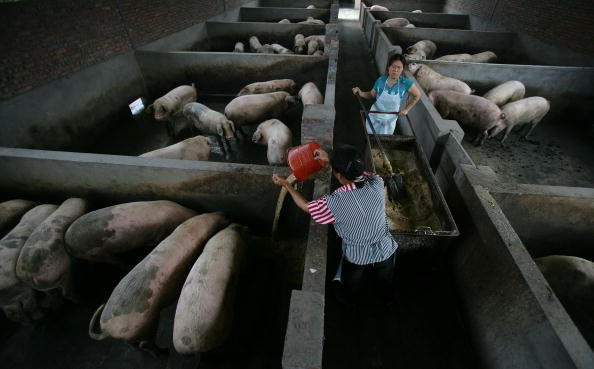More than 15,000 live pigs are being illegally shipped to China daily from Vietnam despite the import ban from the Southeast Asian country, the state broadcaster reported on Sunday.
The smuggled pigs are being shipped to China from Vietnam via "smuggling routes" in the port city of Aidan in South China's Guangxi Zhuang Autonomous Region, according to the China Central Television (CCTV).
The pigs, which cost 4 yuan ($0.58) cheaper per kilogram than China-raised pigs, do not undergo the inspection or quarantine process.
The rampant illegal pig imports in the area has also led to "truck escort teams," which not only guide the trucks carrying the smuggled pigs past frontier inspection stations but also prevent them from being stopped by law enforcement officials tasked with investigating pig smuggling operations beyond the highway toll station.
The escort teams typically purchase "plates" from counter-smuggling and public security officials for 30,000 yuan to allow free passage to the trucks, which then travel to slaughterhouses across the country, one of the truck drivers told CCTV.
The smuggling chain involves Vietnamese suppliers, Chinese traders, and middlemen, the report said.
Aidan city officials have yet to comment on the report, although local inspectors have told local media that they condone the illegal shipments.
China's Ministry of Agriculture (MOA) and the General Administration of Quality Supervision, Inspection, and Quarantine, have banned the imports of live pigs and other cloven-hoofed from Vietnam, where foot-and-mouth disease has frequently surfaced from 2003 to 2016.
In July 2015, the Chinese coast guard confiscated more than 200 tons of smuggled frozen meat from Vietnam in south China's Hainan province in July 2015 and arrested 49 people.
Pig smuggling has negatively affected hog production in China, contributes to tax evasion, and poses serious food safety issues, according to the state-owned Xinhua News Agency.



























